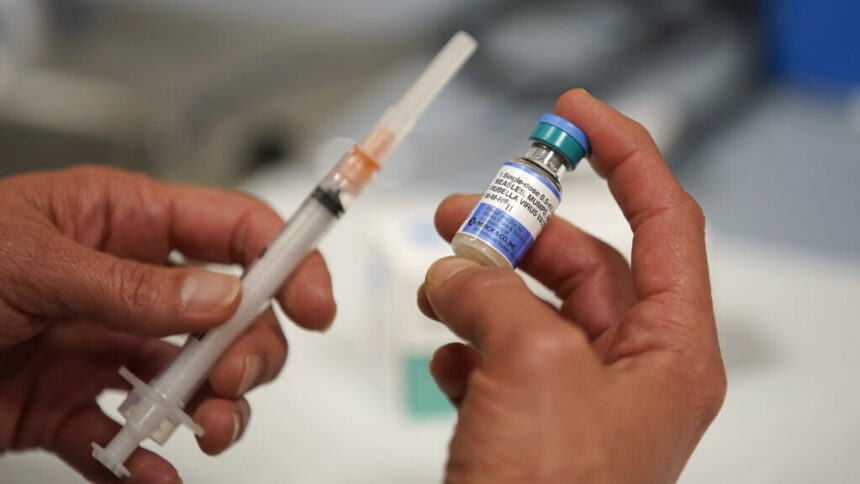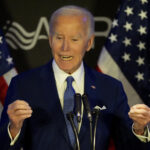The meeting of vaccine advisers, long targeted by health secretary Robert F. Kennedy Jr., took place on Tuesday without any major disruptions or interference. However, the new administration’s influence was evident from the beginning, as staff from the Centers for Disease Control and Prevention (CDC) struggled to get a livestream of the meeting running due to recent layoffs affecting the communications group.
The Advisory Committee on Immunization Practices (ACIP), a longstanding body that provides recommendations for vaccine deployment in the country, reconvened after the Health and Human Services Department abruptly cancelled the February meeting. Public health experts were relieved to see the committee back in action but remained wary of potential interference from a department now led by a prominent vaccine critic.
During the nine-hour meeting, experts delved into detailed data on vaccines for Covid-19, Mpox, HPV, Lyme disease, and cytomegalovirus. The committee emphasized the importance of vaccination, particularly in the face of the growing measles outbreak. While not directly addressing Kennedy, who has expressed mixed views on vaccines, committee members stressed the effectiveness and importance of vaccines like the measles vaccine.
Despite the positive tone of the meeting, concerns lingered about the resources available to address public health crises like the measles outbreak. CDC officials highlighted challenges stemming from funding cuts and resource limitations, which could hamper response efforts.
The meeting also raised questions about the FDA’s vaccine review process, especially following the agency’s recent decision to decline approval for Novavax’s Covid-19 vaccine. The role of key figures like Tracy Beth Høeg, an epidemiologist and FDA aide, in such decisions was scrutinized, hinting at potential shifts in vaccine policy under the new administration.
Furthermore, discussions at the meeting touched on potential revisions to vaccine recommendations, such as the Jynneos vaccine for Mpox, which had previously caused an outbreak. Changes to recommendations for at-risk groups, including transgender and nonbinary individuals, reflected broader policy shifts under the new administration.
Overall, the meeting provided a platform for experts to discuss critical vaccine-related issues, but uncertainties remained about the future of vaccine policy and regulation under the current administration. As public health challenges continue to evolve, ongoing discussions and decisions at forums like the ACIP meeting will play a crucial role in shaping vaccination strategies and responses to infectious diseases. Over the past couple of years, the cost of the Jynneos vaccine has raised concerns among healthcare professionals. With a price tag exceeding $200, some experts have questioned the justification for such a high cost, especially considering the relatively low number of cases that the vaccine aims to prevent. Jamie Loehr, a family physician from Rochester, New York, expressed skepticism about the value of spending such a significant amount of resources on a vaccine with limited impact.
Despite the cost concerns, a recent committee meeting was conducted to discuss the efficacy and necessity of the Jynneos vaccine. Committee members were relieved that the meeting went smoothly, as they had anticipated facing numerous challenges. The Advisory Committee on Immunization Practices (ACIP) executive secretary, Melinda Wharton, expressed gratitude that the meeting was able to take place without any major issues.
During the meeting, experts reviewed data on the effectiveness of Jynneos and discussed its potential benefits in preventing certain diseases. While some members raised questions about the cost-effectiveness of the vaccine, others emphasized the importance of considering the overall public health impact. Ultimately, the committee acknowledged the complexities of vaccine pricing and the need for further research to determine the best approach to vaccination strategies.
As discussions continue around the cost and efficacy of the Jynneos vaccine, it remains a topic of interest among healthcare professionals and policymakers. The outcome of these debates will likely shape future decisions regarding the use and accessibility of this vaccine in the fight against infectious diseases.








